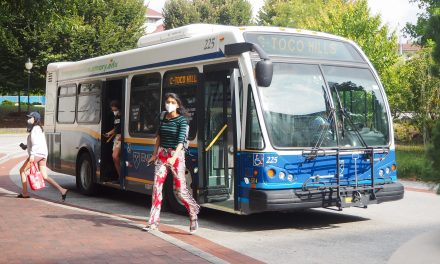The incoming Student Government Association (SGA) will receive two percent of the Student Activities Fee (SAF) starting next semester, a one percent increase from this year, following a decision made by the outgoing legislature.
The SAF consists of the $86 that students pay each semester as part of their Emory tuition. SGA and other divisional councils – or those that support and oversee organizations in different Emory schools, such as College Council (CC) – use the fee to fund student activities and initiatives, specifically those that SGA-chartered organizations run. SGA determines how the SAF is split among the divisional councils.
In light of concerns at the most recent SGA legislative session regarding limited funds left for the remainder of the school year, SGA executive members informed the legislature of the one-percent increase.
Indeed, this year’s SGA has been reluctant to fund certain events because of the low balance remaining in its account.
During the most recent meeting, coordinators of the annual TEDxEmory event at first asked SGA for $15,000.
SGA, however, only has about $9,700 remaining in its budget for the remainder of the year.
“We’ll take whatever [SGA] can give us,” College sophomore and TEDxEmory Treasurer Ariella Iancu said.
In former SGA President Adam McCall’s (’12C) administration had reduced SGA’s portion to one percent.
SGA reduced the SAF because money was not being fully spent, according to Assistant Dean for Campus Life and Director of the Office of Leadership and Services (OSLS) Matthew Garrett. But later that same year, it became clear that the 2011-2012 SGA was using up the money too quickly, he said.
A repeal of this bill, however, requires a year for it to take into effect, which meant that the 2012-2013 SGA could only use one percent of the SAF.
“Hopefully, the two-percent level will be the right balance between adequate funds to fully operate SGA each year, balanced with giving as much money back to the divisions to spend on programming,” Garrett said.
According to SGA President and College senior Ashish Gandhi, McCall’s administration decided that SGA should allocate more money to the divisional councils.
The amount of money SGA spends varies each year based on which campus organizations request funds and the amount of money SGA decides to allocate to these organizations.
In regard to the TEDxEmory bill at Monday’s evening, because the bill originally asked for more money than SGA has, legislators were faced with the task of suggesting their own amounts to fund TEDxEmory.
Some members said they were unsure of how much money would both satisfy the event’s coordinators and leave enough remaining in SGA’s budget for the remainder of the academic year.
SGA Speaker of the Legislature and College senior Milan Udawatta suggested an amount of $5,000.
The amount, however, failed to garner a majority of the vote. Eventually, the bill was amended to read $4,000, which is $11,000 less than TEDxEmory’s ideal amount.
SGA members like SGA Governance Committee Chair and Goizueta Business School sophomore Ted Guio were reluctant to spend nearly half of SGA’s remaining money when other divisional councils could still potentially fund TEDxEmory.
TEDxEmory will take place on April 20, so SGA voted to table the bill for next Monday’s meeting. The amount SGA will fund for TEDxEmory has yet to be determined.
Similar incidents occurred earlier in the year.
When SGA discussed funding Emory Chinese Student Association’s (ECSA) annual Lunar Banquet in Janurary, SGA’s Finance Committee expressed concerns that it would be giving ECSA more money than they gave Indian Cultural Exchange (ICE) for Diwali.
The committee compared the two events because they are the largest cultural events that Emory organizations host.
Eventually, Gandhi overrode those concerns, and SGA provided the full amount for which ECSA asked.
– By Rupsha Basu
The Emory Wheel was founded in 1919 and is currently the only independent, student-run newspaper of Emory University. The Wheel publishes weekly on Wednesdays during the academic year, except during University holidays and scheduled publication intermissions.
The Wheel is financially and editorially independent from the University. All of its content is generated by the Wheel’s more than 100 student staff members and contributing writers, and its printing costs are covered by profits from self-generated advertising sales.




